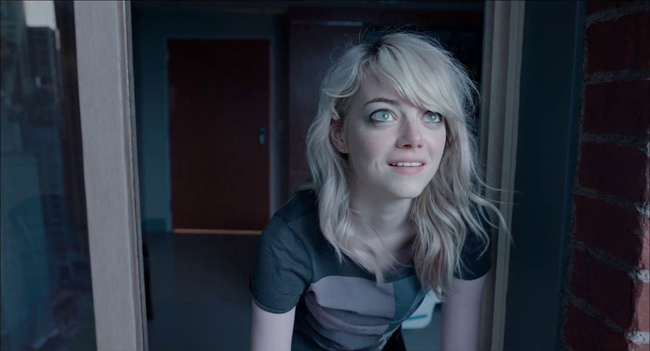
Written by Alejandro González Iñárritu, Nicolás Giacobone, Alexander Dinelaris and Armando Bo
Directed by Alejandro González Iñárritu
USA, 2014
Birdman is director Alejandro González Iñárritu’s mad masterpiece about one man’s search for relevance and validation. It’s a striking and welcome return to form for Michael Keaton, who has long been absent from the spotlight, bar occasional supporting roles in the likes of The Other Guys and the RoboCop remake. The surprisingly meta world of Birdman is more along the lines of a Charlie Kaufman concoction than something Iñárritu would normally attempt. His crushingly sad takes on existence in Amores Perros, 21 Grams, Babel and Biutiful have inventive plot devices about intersecting lives, but Birdman is wholly about the grand hallucinatory ego of one man and the stories that happen to briefly touch him. Both Keaton and Iñárritu provide us with ample reasons to admire the off-the-wall, swirling existential crisis that is Birdman.
The film is a huge creative gamble that pays off. Back from obscurity we have Keaton in fine form, with his spastic energy perfect for portraying the manic vulnerability of an actor whose situation is oddly close to his own. Following the huge commercial success of the Birdman franchise of the ’90s, Riggan Thomson (Keaton) wavers back and forth in confidence as he attempts to premiere Raymond Carver’s What We Talk About When We Talk About Love on Broadway. Levitating and smashing objects against walls with his mind in frustration as events of his own making get in the way of a successful launch, Riggan props up the fragility of his self-important decisions with ever increasing despair.
Birdman is highly reminiscent of Noises Off, a play by Michael Frayn, about the insanity of actors as they weave in and out of doing scenes live in front of an audience on-stage. The unpredictable actor Mike Shiner (Edward Norton) throws Riggan Thomson’s life even more into chaos by his refusal to bend to his wishes. Emma Stone plays Sam, Riggan’s recovering addict daughter who has long been put on the back-burner by her dad. Stone and Norton’s challenging forces irritate but eventually bring Riggan face to face with some hard truths about himself.
The notion of being infinitesimally insignificant in the grand scheme of the universe factors into Birdman easily being Iñárritu’s best work to date. The action is intimate and internal, but the scope extends itself to something higher, beyond fame that Riggan may or may not attain. The friction of the wordplay matches the careening nature of the camera, diving in and out of hallways, streets, rooftops and the stage. The resolution for characters besides Keaton is not treated well, but the open-minded set-up of the movie makes up for not completing them. After all, it is clear that the world of this film is entirely devoted, if not completely honed in on the mind of Riggan, with only brief interludes that flesh out the people he uses and fleetingly learns from. Stone is saved from a bit part by a unflinching, unbroken and biting monologue, while Norton is given ample room to spectacularly chew the scenery and rub every character wrong until they come to profound conclusions about themselves.
There is a thrill of something utterly different hitting the cinemas with Michael Keaton in tow that ignites excitement as the opening sequence begins. The audience is drawn into a dialogue-thick, frenzied piece of work that won’t necessarily connect with them. The acting in-jokes, academic references and snarky disposition of many of the characters are sure to push many viewers away. Philosophical yet also laced with some lower-brow humor, Birdman is as funny as it is dark. Keaton’s whimsical and provocative deliveries have been missed, and the totality of Birdman‘s many unbroken, ambitious shots produce equal parts delight and delirium.
— Lane Scarberry
Visit the official website of the Telluride Film Festival



